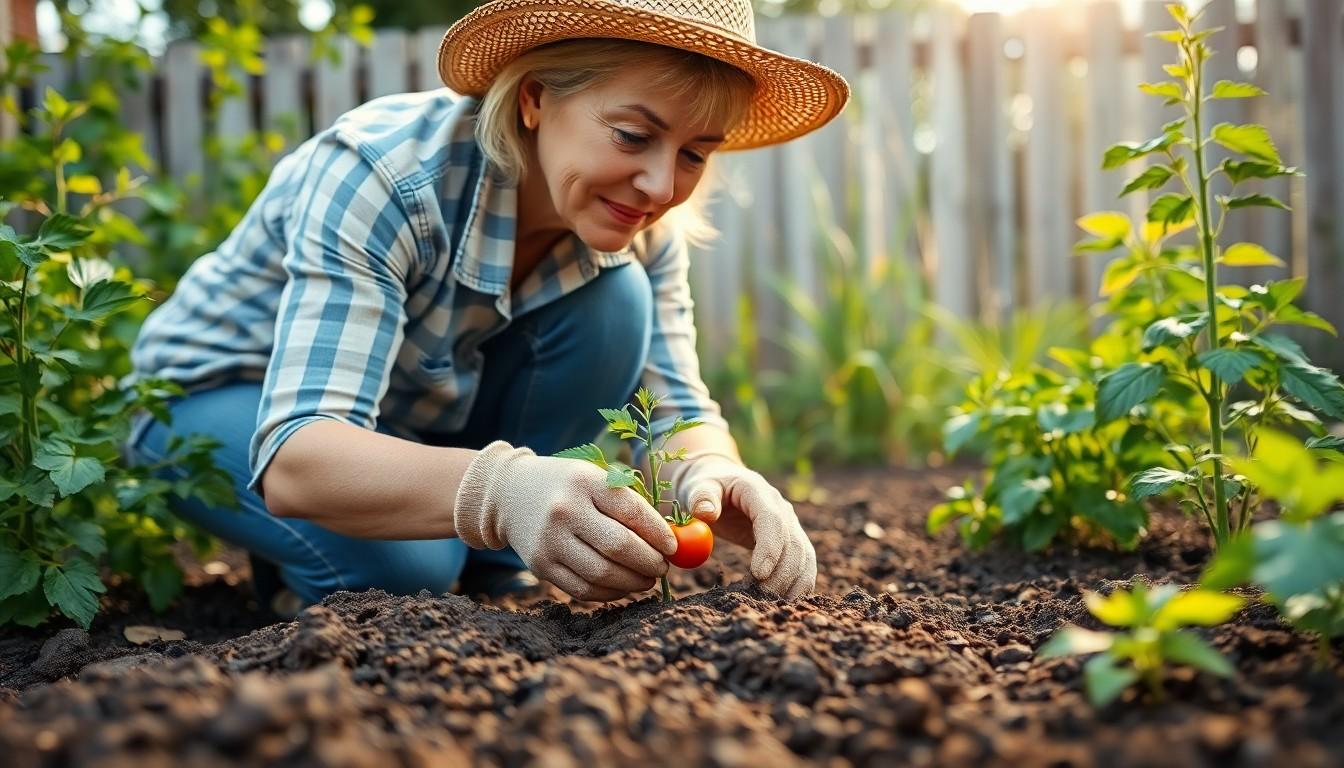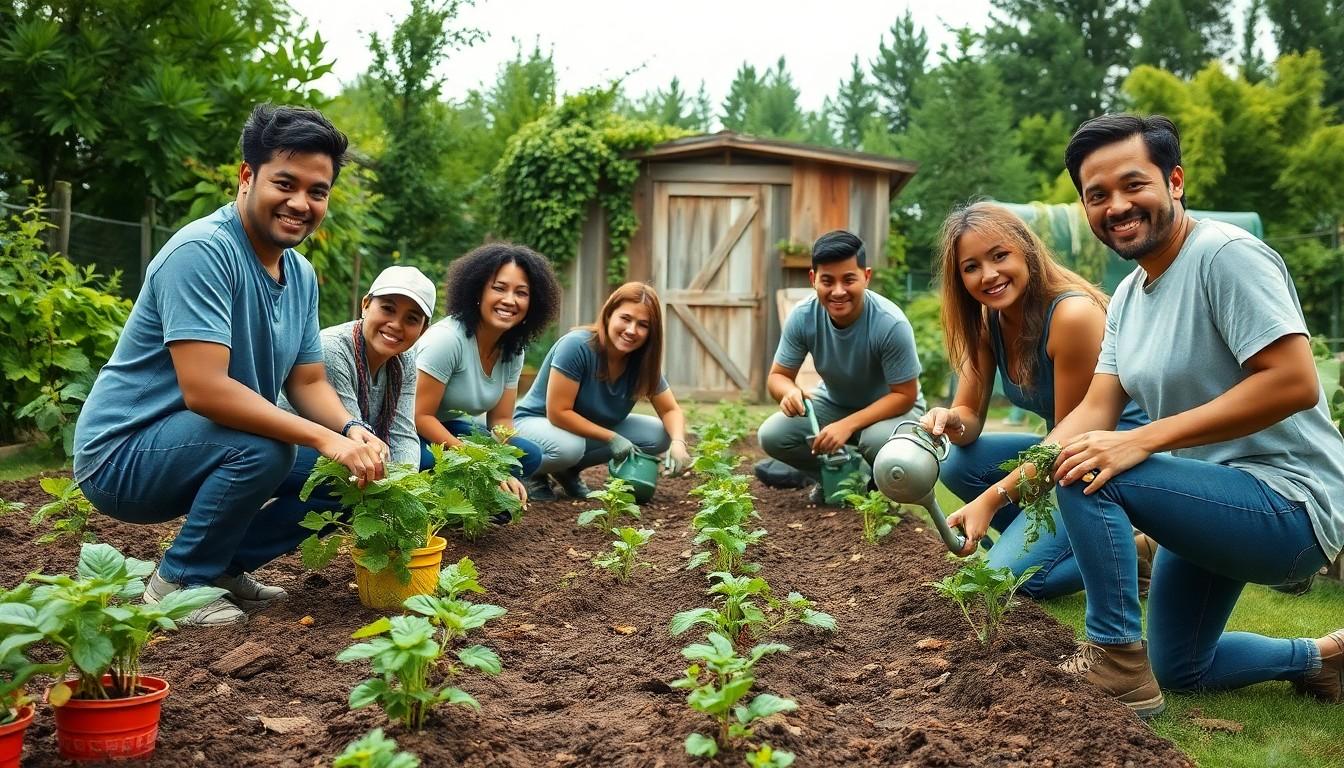Phone:
(701)814-6992
Physical address:
6296 Donnelly Plaza
Ratkeville, Bahamas.

In a world where convenience often trumps independence, the concept of real self-sufficiency might sound like a quirky throwback to the days of pioneers and hand-cranked butter churns. But hold on—this isn’t just about living off the grid or growing your own kale. It’s about reclaiming control over your life, one backyard tomato plant at a time. Imagine a life where you’re not just surviving but thriving, all while dodging the chaos of modern consumerism.
Real self-sufficiency encompasses a holistic approach to independence, extending beyond merely growing food or utilizing renewable energy. It involves reclaiming personal autonomy in various aspects of life. Individuals can cultivate their skills, making informed choices that prioritize sustainability and self-reliance.
Financial autonomy plays a critical role in this lifestyle. Managing resources effectively reduces dependence on external economic fluctuations. By budgeting and saving, individuals can achieve greater control over their financial future.
Another aspect includes enhancing personal skills. Cooking from scratch, preserving foods, or repairing household items significantly contributes to self-sufficiency. These practices not only foster independence but also create a deeper connection with daily activities.
Community engagement matters as well. Building local networks with like-minded individuals promotes shared resources and knowledge. Collaborating on projects like community gardens or tool libraries strengthens collective resilience.
Emotional well-being forms an essential part of self-sufficiency. Individuals who connect with nature through gardening or outdoor activities enrich their mental and emotional health. These practices enhance their sense of fulfillment and purpose.
Real self-sufficiency embodies a proactive mindset. It encourages individuals to embrace their capabilities while striving for personal growth and environmental stewardship. Making small changes, such as starting a backyard garden or learning a new skill, can lead to meaningful improvements in one’s life.

Self-sufficiency embodies the ability to meet personal needs through various means. Essential principles guide individuals toward achieving a self-sufficient lifestyle.
Independence in basic needs forms the cornerstone of self-sufficiency. Secure access to food, water, and shelter reduces vulnerability to external influences. Individuals can grow their own food, raising vegetables and fruits, which decreases reliance on commercial sources. Collecting rainwater or using simple purification techniques offers an alternative to traditional water supplies. Moreover, building or renovating sustainable housing enhances self-reliance. Engaging in these practices fosters empowerment and encourages people to take control of their essential resources.
Effective resource management plays a crucial role in fostering self-sufficiency. It encompasses efficient use and conservation of resources, which mitigates waste. Individuals should prioritize budgeting to ensure a clear understanding of financial resources. Skills like repairing household items reduce dependence on new purchases. Emphasizing sustainable practices, such as composting and recycling, maintains ecological balance while improving the environment. Managing time efficiently also encourages personal growth and enables individuals to invest in learning new skills. Ultimately, resource management cultivates independence and resilience in the face of unforeseen challenges.
Achieving self-sufficiency offers numerous advantages across various aspects of life. These benefits significantly enhance personal autonomy and overall well-being.
Financial savings emerge as a primary economic advantage. Individuals save money by growing their own food and reducing grocery expenses. Budgeting skills improve, leading to more efficient resource management. Repairing items instead of purchasing new ones also plays a critical role in reducing costs. Enhanced financial independence means fewer vulnerabilities to external economic fluctuations. Communities benefit as individuals share resources and skills, fostering local economies. Investing time in self-sufficiency cultivates a resilient mindset that prioritizes sustainability.
Self-sufficiency contributes positively to environmental health. Practices such as gardening or composting mitigate waste and promote biodiversity. Conservation of water through rainwater collection significantly reduces demand on local supplies. Growing food without pesticides supports healthier ecosystems and improves soil quality. Furthermore, reliance on locally sourced goods decreases carbon footprints associated with transportation. As individuals engage in sustainable practices, they help protect natural resources for future generations. Commitment to environmental stewardship reflects a conscious choice for a healthier planet.
Real self-sufficiency involves overcoming several challenges that can hinder the pursuit of independence in daily life.
Initial setup costs can create barriers to real self-sufficiency. Purchasing land for gardening, investing in tools, and setting up systems for rainwater collection requires capital. A small-scale, backyard garden might demand a few hundred dollars for seeds, soil, and equipment, which could deter potential self-sufficient individuals. Upfront investments in sustainable energy solutions, such as solar panels, often range from $15,000 to $30,000, presenting significant financial challenges. These costs may discourage individuals from taking steps toward self-sufficiency.
Knowledge and skills requirements pose another hurdle to self-sufficiency. Many individuals lack experience in gardening, sustainable practices, or DIY repairs. Cultivating a productive vegetable garden involves understanding soil health, pest management, and seasonal planting. These skills can take time to learn, complicating the journey toward independence. Cooking from scratch also demands familiarity with techniques and nutrition, which may not be common knowledge. Engaging in community workshops or online courses can provide essential skills, but they require effort and dedication to acquire, posing a challenge to many aspiring self-sufficient individuals.
Real self-sufficiency is about more than just independence; it’s a transformative journey toward reclaiming control over one’s life. By embracing small yet impactful changes individuals can cultivate a fulfilling lifestyle that prioritizes autonomy and resilience. The principles of effective resource management and skill development play a crucial role in this process.
Engaging with the community and connecting with nature fosters emotional well-being and strengthens local ties. While challenges exist in achieving self-sufficiency, the rewards are significant. Individuals who take proactive steps toward self-reliance not only enhance their quality of life but also contribute to a more sustainable future. Ultimately, real self-sufficiency empowers individuals to thrive in a rapidly changing world.